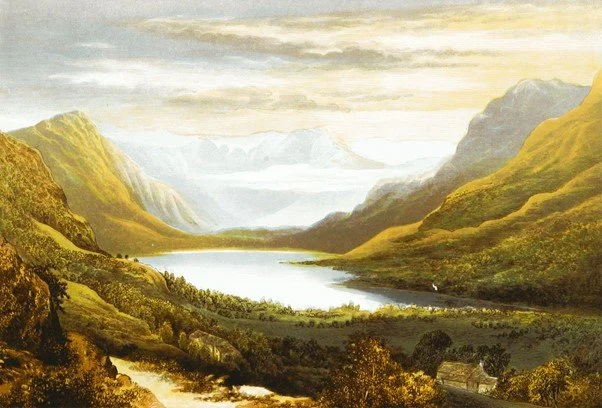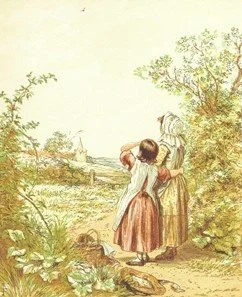Our Enduring Relationship with Art and Nature
By Laura Stachowski
“I wandered lonely as a cloud
That floats on high o'er vales and hills,
When all at once I saw a crowd,
A host, of golden daffodils;
Beside the lake, beneath the trees,
Fluttering and dancing in the breeze.”
- William Wordsworth, I Wandered Lonely as a Cloud (Poetry Foundation)
History can be seen from the things people left behind, the architecture, art, and writing gives us an insight into what life was like, but the blessing and curse of time is that things move on, and immersing ourselves in Dickens’ London is impossible, no matter how good the theatre production of Oliver Twist was. Nature, however, knocks down these impossible barriers and allows us to sense history, and by extension relate far more closely to the feelings of generations past. If you were to take a walk on the Yorkshire moors on a misty day, you would be able to smell the grass and hear the same birdsong that inspired Emily Bronte; we can experience spring knowing that the daffodils paving the roadsides smell the same now as they did when Wordsworth walked among them. The connection that nature gives us is somewhat magical, we live in the present moment while experiencing both the past and the future.
It is fair to say that nothing compares to the idea of the ‘muse’ quite as nature does, the inspiration it gives us is eternal, John Keats was not wrong when he told us that ‘the poetry of the earth is never dead’. We’ve all seen countless paintings and photographs of mountains, and you’d probably be lying if you said you hadn’t at least attempted an imitation yourself at some point, but somehow their appeal is infinite. Sometimes we don’t even register the presence of nature in our art because it is something we are so innately familiar with, but its presence is evident in every culture, country, and discipline.
One could look to the Industrial Revolution as a marker for a period where technological advancement swept the western world into an attitude of productivity and economy over freedom and liberty. Factories replaced fields and long oppressive working hours replaced childhood innocence. And thus emerged Romanticism, an attempt to reunify the people with ideas of the wisdom of nature. Such ideas as liberty and expression are to be found in nature whereas only corruption was to be found elsewhere. As humans, we have tended to view our development as straying farther away from nature. We try hard to develop new technology and industry, pitting the ideas of rationality against creativity, and putting ourselves on a pedestal of superiority over the natural world. But in all too familiar times of uncertainty, we are always drawn back to the outside world. When things can not be assured it is a comfort to turn to something certain, because the sun will always rise tomorrow. This is nothing new, and nobody can lay claim to thinking this way first, because the truth is that every single one of us thinks the same way, possibly without even knowing it. Nobody is a stranger to hearing and speaking the words ‘you just need some fresh air’ and ‘a walk will make you feel better’, it almost becomes a reflex response when things don’t feel right. I like to think that our attitude of superiority has changed, it makes me hopeful to think that we live in an age where we have started to combine our technologies with nature. Imagine spending sleepless nights hoping for actual rain outside instead of relying on stormy ambience on Youtube, and perish the thought of the day starting with alarm sounds instead of birdsong. We are living in a time where we value both our mental and physical wellbeing, and we have now experienced times where we learned to cherish being outside when everything else was impossible, and let’s be honest, we all would have gone crazy without it.
Nature has served us for millennia, it transcends the boundaries between culture and science. No matter how many times we have used and abused it, we always come back to it in the end. And thus, it seems unfair that for all it has done for us, the natural world is now suffering its own uncertainty. The ancient Greeks worshipped their muses, and I can only hope that we treat our greatest muse with the same respect to ensure that our future generations get to experience the same connection as we have. With that being said, remember to go outside to get some fresh air today.
ST.ART Magazine does not own the rights to any images used in this article.



